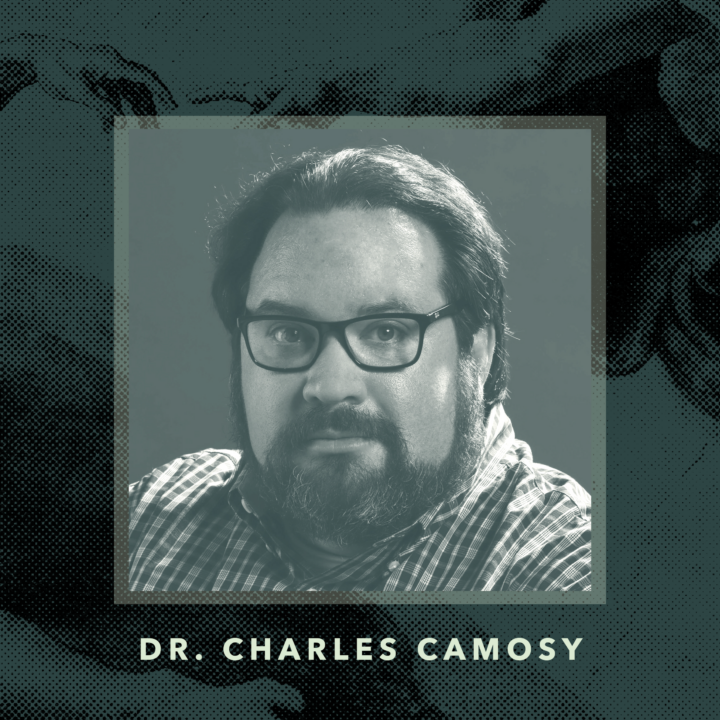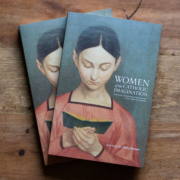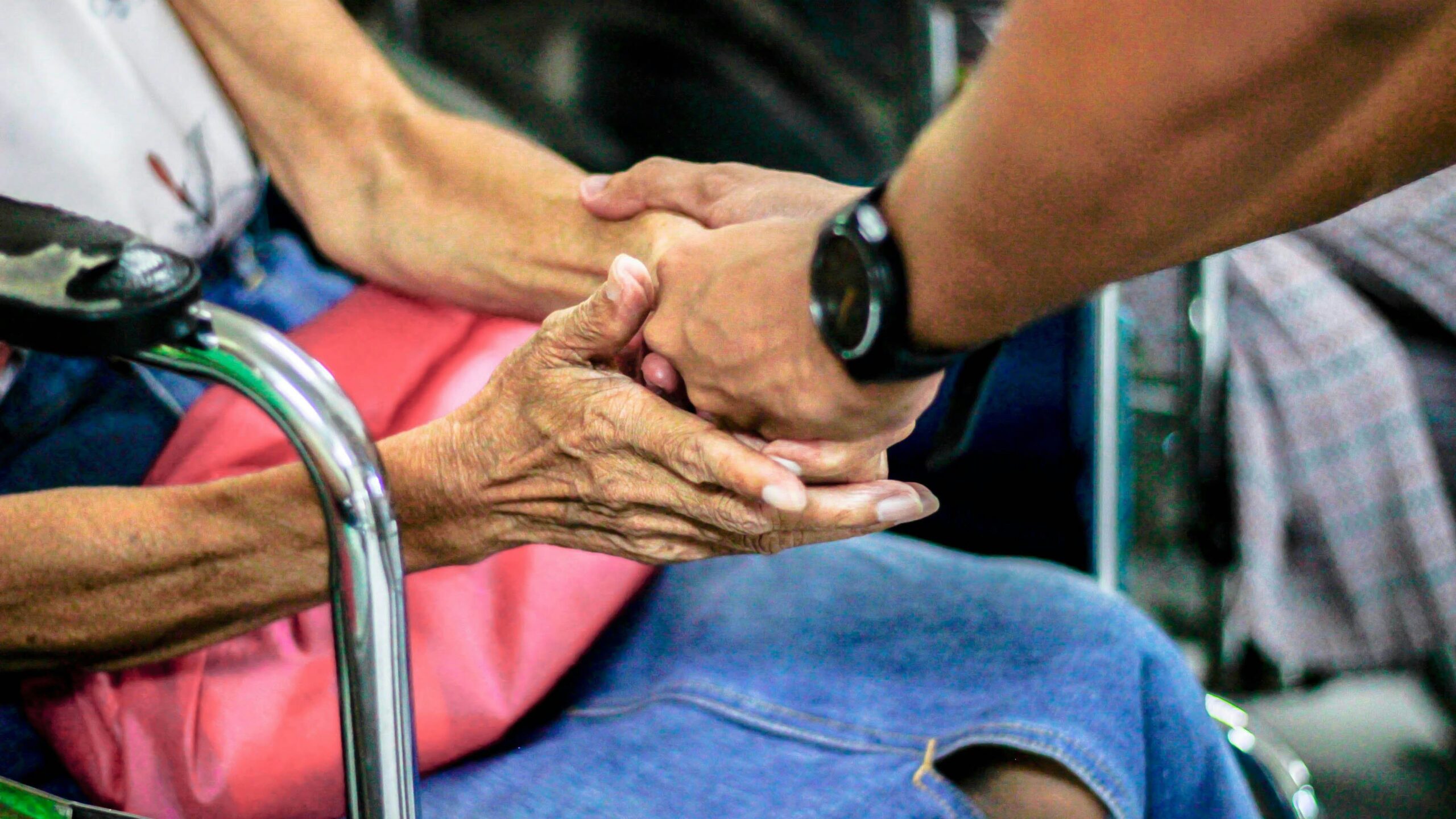
Dr. Charles Camosy joins the lineup of speakers this August at the second annual Wonder Conference. Hosted this year in Rochester, Minnesota, attendees will hear insights on the theme of nature and the human body.
I had the great pleasure of getting to know Dr. Camosy and learn more about his plans for Wonder.
Caroline: Thank you, Charles, for giving us this opportunity to get to know you before your much-anticipated appearance at this year’s Wonder Conference. Please tell us how you got started in your field.
Dr. Camosy: Well, I’m in a number of different fields: moral theology, bioethics, pro-life activism, and more. I started out as a philosophy major in the mid-1990s at Notre Dame—a very young man wanting to dive deeply into questions of philosophy of religion (I wrote my senior thesis on trying to solve the logical problem of the Trinity! Talk about arrogant!), but after a year of graduate school in Southern California in this field, I ultimately found it inadequate for living into the mystery of God. So I left the program and returned to Notre Dame to get a masters in theology—mostly, if I’m honest, because I didn’t know what else to do, and I wanted to hang out with friends at football games and in the theater program.
After getting my masters, I still didn’t know what to do, so went home and took my first full-time job as communications director for Pro-Life Wisconsin. Soon after, however, I decided that my pro-life vision was more expansive, and when I got the chance to teach high school theology in a college-prep Catholic school, I jumped at it. Three years teaching there (along with coaching basketball and advising the pro-life club)—and especially teaching juniors Catholic Social Teaching and Bioethics back to back—convinced me of the unity of the Church’s moral tradition and gave me the bug to get a doctorate in moral theology with a focus on how the Church’s social teaching and bioethical teaching were two peas in a pod.
Christ and his Church call us to live out—both as individuals and in communities—a counter-culture of non-violence, encounter, and hospitality.
I was fortunate to get an excellent education in a wonderful theology department at Notre Dame and produce a dissertation that became the first of several books I would go on to write. I was also fortunate to get a tenure-track position at Fordham University right out of graduation, get tenure, and ultimately, now, a full professor position at the Creighton School of Medicine with a moral theology fellowship at St. Joseph Seminary just north of New York City. I feel very fortunate to be able to write for both academic and popular audiences, travel to give lectures, teach future priests and health care providers, and work within the structures of the pro-life movement.
How does faith inform your work?
It is at the center of everything. I’ve either attended or taught at Catholic schools every year of my life (but one) since I was six years old. I believe in Catholic education with everything that I am, particularly at this moment in our culture’s history. Indeed, I very much believe that now is the time for the Church to both strengthen and build institutions (in education, health care, and more) with the counter-cultural vision of human dignity lived and taught by Christ. One in which His Holy Face is especially present in the least and most despised among us. Those most at risk (to use the Holy Father’s phrase) of being thrown away: prenatal human beings, migrants and refugees, those with dementia and other disabilities, tiny human embryos in frozen captivity, and more. Christ and his Church call us to live out—both as individuals and in communities—a counter-culture of non-violence, encounter, and hospitality.
My view, after thinking about these matters for some time, is that without an explicit or implicit theological vision of the human being, it becomes something close to impossible to see these populations as the equals of other kinds of human beings, much less making sure that they have special protection!
What will you be speaking about at this year’s Wonder Conference?
I’ll be making the case for “the body in bioethics.” I’ll be suggesting that our secularized understanding of medicine and bioethics has lost the body and, as a result, has lost the foundational feature that grounds fundamental human dignity and equality, much less (again) the basis of making sure vulnerable human beings have special protection.
The secularized nature of health care and bioethics, and the loss of the body, has put so many vulnerable populations at risk.
What do you hope people take away from your lecture?
I’m not an alarmist—indeed, part of the strength of thinking about the Church’s social tradition and bioethics/pro-life tradition together is it puts us in position to dial down the right/left tension and bring people and ideas together—but I do want to sound a kind of alarm. The secularized nature of health care and bioethics, and the loss of the body, has put so many vulnerable populations at risk. I hope to raise a clarion call to live out the dignity of the human person as we understand it in three places: (1) our personal lives and our lives with our families, (2) our engagement with the broader secular culture and public policy, and (3) with the broader family of the Church. Indeed, if we cannot be effective with (2), it may be that building new and better institutions within the Church will be the only way to make sure vulnerable human beings are protected.
What are the most pressing challenges in bioethics today? How should people of faith face these challenges?
Especially after Dobbs (though it was bad before as well), our ability to engage the broader secular culture on the matters above has been significantly diminished. Many places in the academy, in health care, in the media, and elsewhere not only do not share our views—but are absolutely hostile and see our views and sometimes our very existence as hostile and something to be confronted and defeated.

Christ himself gives us the game plan for how to face such challenges, however. We must not respond in kind, but rather find a way to love our enemies, pray for them, and turn the other cheek. We must rejoice that we have been found worthy to suffer for the sake of the Gospel. And, at least in my experience, that suffering can bear fruit: long-standing commitments to really engage, to promote a culture of encounter and hospitality even with our enemies, can open pathways for God’s grace that didn’t exist before. It is one significant way that we can be like John the Baptist and prepare the way of the Lord, making straight his paths into the hearts of those who need it the most.
To wrap up, what fuels your enthusiasm for your work day-to-day?
While it is a very challenging time, these challenges (to use the cliché) are most definitely opportunities in work clothes. Our fellow human beings are deeply and profoundly dissatisfied with the secularized culture and, I believe, primed to hear the Gospel in a new way. This, however, is where Pope Francis is absolutely correct to focus first on the Church as a field hospital for hurting people. The harvest is great, but the laborers are few. We need more laborers, more fishers of men, to create a healing, welcoming counter-culture of encounter and hospitality. The astonishing possibilities present in such a culture enthuse and energize my work each day!
Thank you very much for your time and for sharing your thoughts and experience. We’re very excited to see and hear you this August at Wonder 24!
***
Order your tickets here: WonderConference.com
